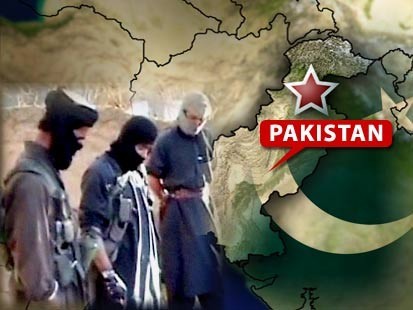Hardline cleric vows to bring Islamic sharia to Pakistan
 Islamabad - A pro-Taliban cleric reiterated his pledge Friday to struggle "till death" for enforcement of Islamic sharia law across Pakistan, asking his supporters to be ready for sacrifices.
Islamabad - A pro-Taliban cleric reiterated his pledge Friday to struggle "till death" for enforcement of Islamic sharia law across Pakistan, asking his supporters to be ready for sacrifices.
"The more sacrifices we offer, the more quickly Islam will spread," Maulana Abdul Aziz stressed in his Friday sermon at Islamabad's Red Mosque, which was brimming with people, including hundreds of students from local Islamic seminaries.
More than 100 burka-clad women also gathered outside the mosque, which was the site of a deadly government siege in 2007. On Friday, the mosque was cordoned off by law-enforcement agencies who searched the area located in the heart of Pakistan's capital.
Wearing a chequered headscarf and sporting a flowing grey beard, the cleric received thunderous replies of "Yes, we will" when he asked the members of the assembly whether they would offer sacrifices or even give their lives for the cause of the religion.
Aziz returned to his mosque late Thursday after being released on bail with a surety of 2,500 US dollars. He was arrested in July 2007 trying to slip away from the besieged building dressed in burka, a head-to-toe clothing worn by Muslim women.
The weeklong siege began when authorities accused it of links with al-Qaeda and Taliban militants and seeking to impose a Taliban style of life in the capital. The siege ended when elite commandos stormed the sprawling compound housing the mosque, its affiliate Jamia Hafsa women's seminary and a state-run Children's Library that was taken over by the female students.
Government officials said at least 102 people, including a dozen troops, died in the operation, but religious circles accused the military of killing thousands of Jamia Hafsa pupils.
Aziz told around 1,000 of his supporters Thursday that "the sacrifices made by the martyrs of the Red Mosque and Jamia Hafsa will not go in vain."
However, the cleric said he had no plans to avenge the deaths. Aziz's brother, Abdur Rashid Ghazi, and his mother were among those killed in the operation.
The bloody raid triggered a wave of militant attacks, mostly suicide bombings, on security forces with calls for revenge coming even from Ayman al-Zawahri, the top lieutenant of al-Qaeda's Osama bin Ladin.
The deteriorating security situation, coupled with infiltration of militants into settled areas, set off alarm bells for Western leaders concerned about stability in the lone Islamic nuclear power.
Aziz's release from detention came days after Pakistan approved implementation of sharia law in parts of north-western Pakistan under a controversial agreement with militants in an attempt to end 18 months of violence in the picturesque Swat Valley, once a favourite tourist attraction.
US fears have also been revived as it has placed Pakistan in the front line of its new strategy to win the war against the Taliban in Afghanistan.(dpa)